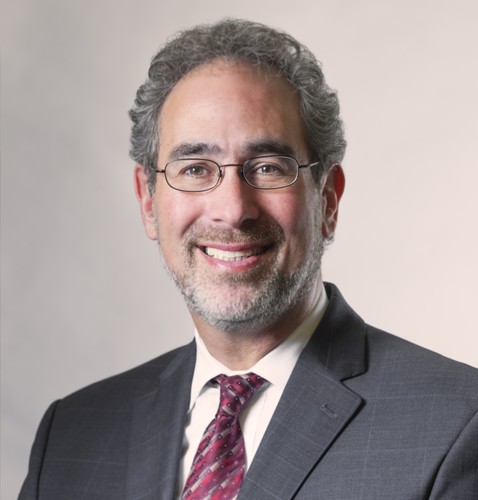New York State Medicaid Updates for 2024
January 23, 2024 |
Trusts and Estates Blog
Medicaid is a joint federal and state program that provides health coverage to millions of Americans. Federal law requires states to comply with certain minimum requirements, but New York is considered a maximum state in that it generally applies the maximum allowances for resources and income levels. There are different methodologies for determining Medicaid eligibility. The “MAGI” or “Modified Adjusted Gross Income” methodology uses a person’s taxable income and does not use an asset or resource test. It is used to determine eligibility for most children, pregnant women, parents, and adults who apply for Medicaid coverage. The “Non-MAGI” methodology is used to determine Medicaid eligibility for people who are 65 and older, blind, or disabled.
Because of the high cost of skilled nursing care ranging anywhere from $12,000 to $18,000 monthly, people can very quickly deplete their savings and resources if they are paying for it privately. Due to this, many people apply for Medicaid coverage to assist with these costs. Additionally, individuals can apply for Medicaid coverage for at-home or community based long term care services which will allow someone to remain at home rather than be admitted into a skilled nursing facility. The “Non-MAGI” methodology for both skilled nursing home care and community based long term care services looks at an individual’s income and assets in order to determine eligibility.
Depending on the situation and the type of resources that a person has available, there are different exemptions and allowable spenddowns. For example, if someone is being admitted to a skilled nursing facility but has a spouse who is not residing in a nursing facility (“community spouse”), then there are certain resources that are exempt from the Medicaid resource calculation, including a vehicle of any value and a primary residence with an equity value of up to $1,071,000 for 2024.
Each year, the income and asset levels for Medicaid eligibility increase based on the Cost-of-Living Adjustment (COLA) determined by the Social Security Administration. For 2024 the COLA is 3.2% and the income limits for “Non-MAGI” Medicaid have increased from $1,563/ month for a single person and $2,106/ month for a couple in 2023, to $1,677/ month for a single person and $2,268/ month for a couple in 2024. Maximum asset levels have also increased from $28,134 for a single person and $37,908 for a couple in 2023, to $30,182 for a single person and $40,821 for a couple in 2024. The Spousal Impoverishment income and resource levels have also increased for 2024. The Maximum Community Spouse Resource Allowance has increased to $154,140 from $148,620 in 2023 and the community spouse Maximum Monthly Maintenance Needs Allowance (MMMNA) has increased to $3,853.50 monthly from $3,715.50 monthly in 2023.
There is currently a 60-month lookback period for skilled nursing care. Any gifting done during this time may result in the implementation of a penalty period where the nursing home resident will be ineligible for Medicaid. In 2021, New York intended to apply a 30-month lookback period for community based long term care services. This lookback period will be delayed until at least March 31, 2024, but most likely until sometime in 2025.
It is essential to recognize the significance of seeking legal guidance to determine the best way to protect your assets and to assist with the Medicaid process. If you have questions pertaining to Medicaid eligibility in New York State, please contact one of our qualified Trust & Estates team members at Lippes Mathias: Jessica M. Peraza (jperaza@lippes.com) or David E. Siegfeld (dsiegfeld@lippes.com) to learn more about how we can help.
It is essential to recognize the significance of seeking legal guidance to determine the best way to protect your assets and to assist with the Medicaid process. If you have questions pertaining to Medicaid eligibility in New York State, please contact one of our qualified Trust & Estates team members at Lippes Mathias: Jessica M. Peraza (jperaza@lippes.com) or David E. Siegfeld (dsiegfeld@lippes.com) to learn more about how we can help.
Disclaimer: The information in this post is provided for general informational purposes only, and may not reflect the current law in your jurisdiction. No information contained in this post should be construed as legal advice from our firm or the individual author, nor is it intended to be a substitute for legal counsel on any subject matter. No reader of this post should act or refrain from acting on the basis of any information included in, or accessible through, this post without seeking the appropriate legal or other professional advice on the particular facts and circumstances at issue from a lawyer licensed in the recipient’s state, country or other appropriate licensing jurisdiction.
Related Content

Press Releases
Partner David E. Siegfeld Renews Board Role at Hospitality House Therapeutic Community
September 3, 2025


Press Releases
David E. Siegfeld Appointed to Board of Directors of Jewish Family Services of Northeastern New York
September 3, 2025


Press Releases
89 Lippes Mathias Attorneys Recognized in the 2026 Edition of The Best Lawyers in America®
August 21, 2025


Events
West Palm Beach Trusts & Estates Seminar
January 22, 2025

TAGS
TRUSTS & ESTATES BLOG
PRACTICE TEAMS
TRUSTS & ESTATES



